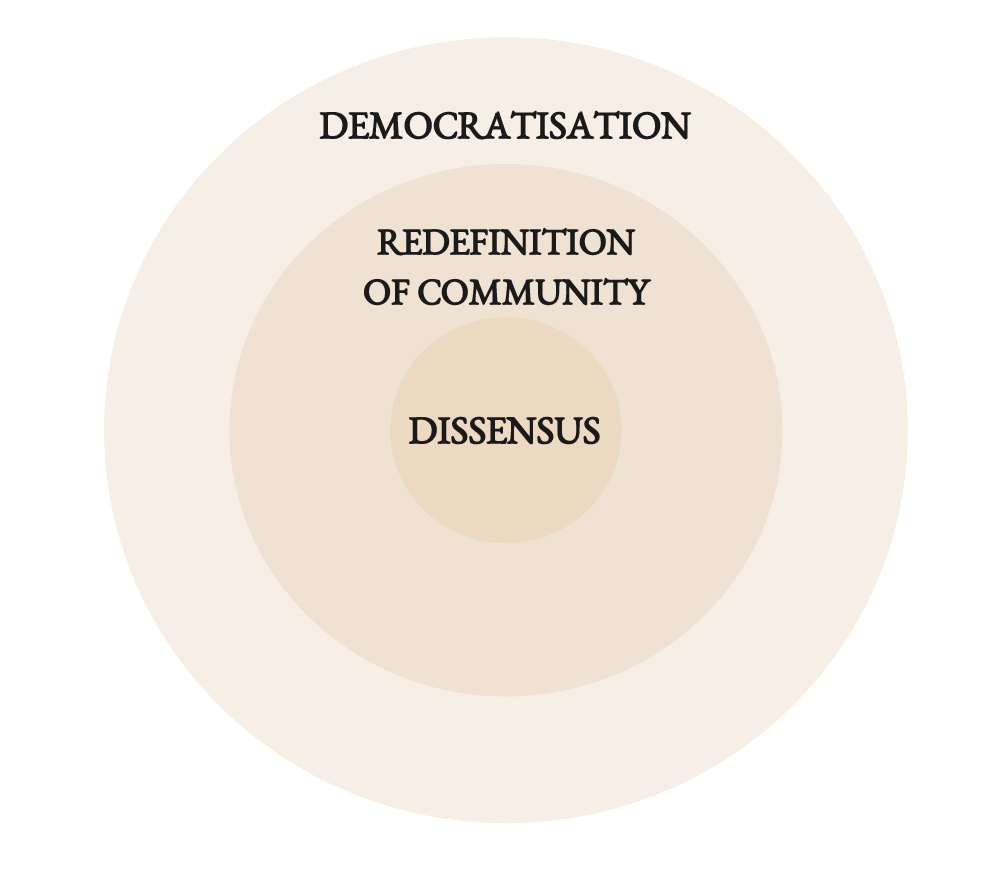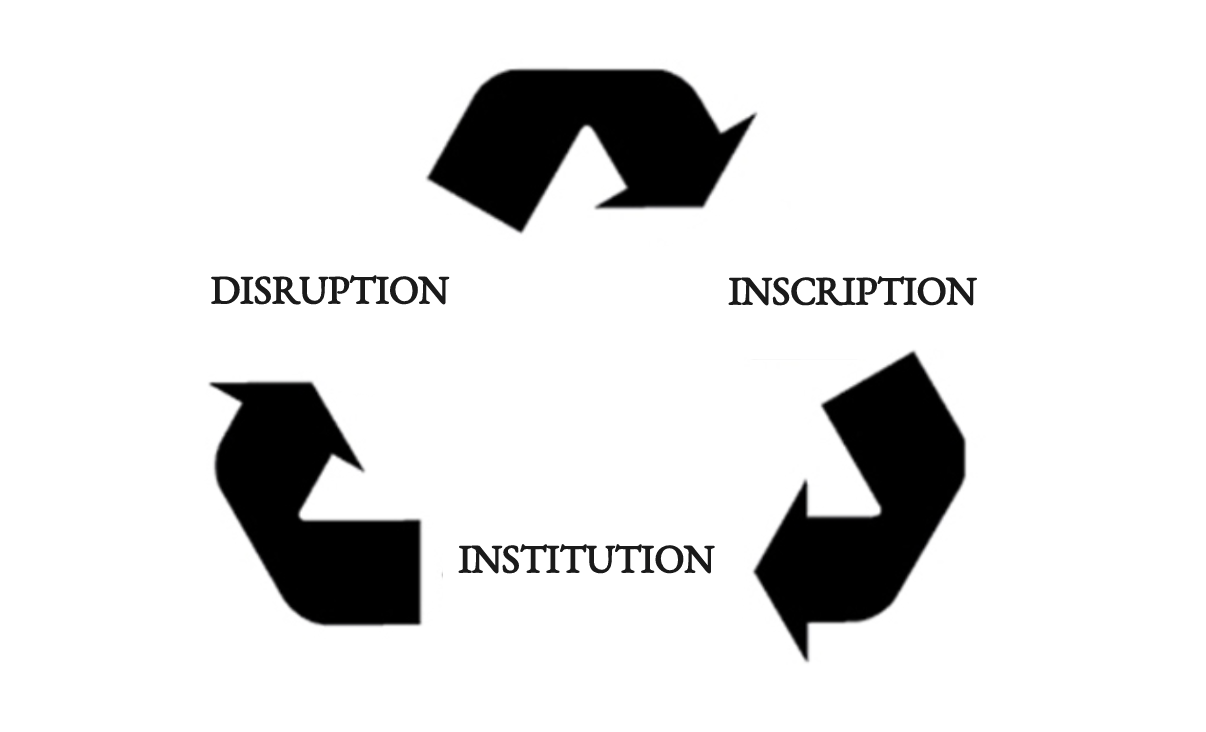Towards the Democratisation of Cultural Institutions: Instituting Dissensus
Routledge, 2026
In a time characterised by the increasing erosion of democratic institutions and processes of depoliticisation, Towards the Democratisation of Cultural Institutions: Instituting Dissensus explores different modes of engagement with cultural institutions and the public space, focusing specifically on institutional cultural practices as a model for the reinvention of democratic politics. This entails the attempt to envisage open, self-reflective, and democratic models of institutional governance that can safeguard the continuous inscription of a multiplicity of social demands. Deploying a pluralistic methodological approach, the books draws not only on contemporary political philosophy, architectural theory, art theory, and cultural studies, but also on ethnographic research in Europe and the U.S.
The book’s theoretical framework is complemented by the exploration of a series of empirical cases that remain largely underexamined by the academic community. The examined case studies include, firstly, attempts of decentering mega-institutions, such as the critically acclaimed international art exhibition documenta 14, which was split between Athens/Greece and Kassel/Germany and foregrounded decolonial narratives, racial struggles, Indigenous rights, transgender identities, and minor histories from the periphery. Secondly, endeavours of inventing flexible and decentralised organisational arrangements and educational platforms in Athens/Greece, Paris/France, Bochum/Germany, and Glasgow/Scotland that introduce novel parliamentary formats, decision-making processes, architectural tools, and performative methodologies. All these artistic organisations and cultural infrastructures share the impetus not only to disseminate knowledge through new communication technologies and to prioritise those who have been rendered socially invisible, but most importantly, to reveal policy failures and potential pathways for reform. And, finally, modes of critical engagement with solidified institutional structures, such as artistic activist initiatives at the Whitney Museum of American Art in New York, that set out to scrutinise museums’ ethics, streams of funding, and principles of governance. Alluding to a broader crisis of legitimacy that major museums are faced with today, such interventions attempt to hold museums, institutions, and non-profit organisations accountable to their own mission statements and the communities they claim to serve.
The book’s investigation of ‘instituting dissensus’ ends by drawing some useful conclusions on the possibilities and limitations of the respective strategies, methodologies, and practices that take place within, at the threshold of, or outside institutional structures, in the attempt to democratise the cultural sector. Apart from the book’s theoretical contribution to political theories that engage with aesthetics and culture, it also aims to contribute to policymaking by addressing questions of democracy, equality, and accountability in institutions, not limited to the cultural realm.
Authored by: Konstantinos Pittas
Published by: Routledge
Publication year: 2026 (Forthcoming)



